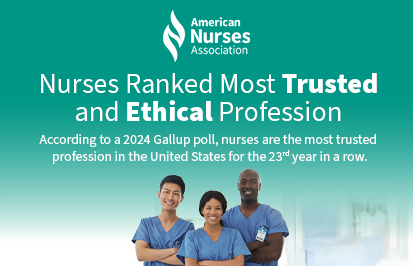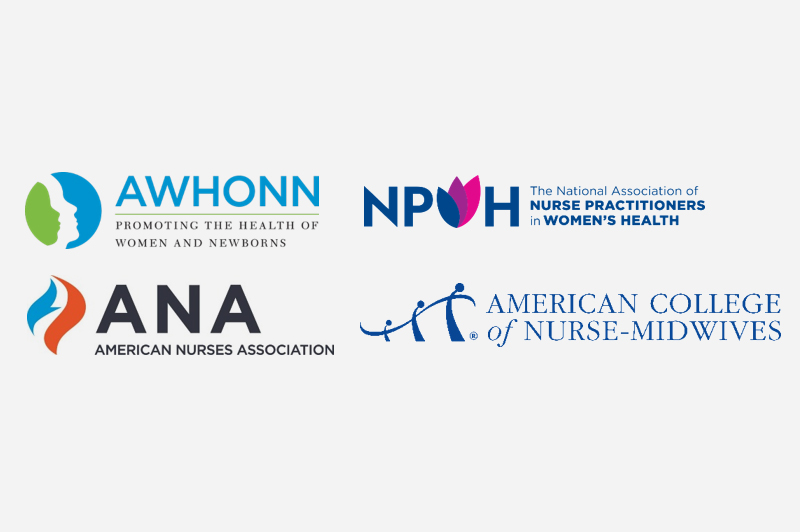All News
Discover updates from across the ANA Enterprise, and the latest examples of nurses leading the way to improve health care for all.
Discover updates from across the ANA Enterprise, and the latest examples of nurses leading the way to improve health care for all.


The American Nurses Foundation (the foundation), the philanthropic arm of the American Nurses Association today announced that Graig R. Eastin has been selected and appointed as Executive Director of the foundation.

The American Nurses Association the premier organization representing the nation’s more than 5 million nurses, congratulates nurses for ranking #1 in Gallup Poll’s annual Most Honest and Ethical Professions Poll for the 23rd consecutive year.

The American Nurses Association is proud to announce that ANA President, Jennifer Mensik Kennedy, was recognized as one of Modern Healthcare’s 100 Most Influential People in Healthcare for the 2nd year.
Starting today, the National Commission to Address Racism in Nursing (the Commission) is partnering with fellow nursing organizations to launch the Latinas in Nursing Book Club Series.
The Tri-Council for Nursing is joining the Center for Disease and Control and Prevention (CDC) for a webinar titled Getting Prepared for the Fall/Winter Respiratory Virus Season: Immunizations, Treatments, and Tools for the 2024-2025 Season on September 16, 2024, at 2:00 p.m. ET.
The American Nurses Association (ANA) is excited to share that the American Nurses Advocacy Institute (ANAI) program is underway in Washington D.C., September 8-10, 2024.
Following the declaration of Monkeypox (mpox) as a public health emergency of international concern earlier this month, the World Health Organization (WHO) has launched a global Strategic Preparedness and Response Plan to stop outbreaks of human-to-human transmission of mpox through coordinated efforts.

The American Nurses Association (ANA), Association of Women’s Health, Obstetric and Neonatal Nurses (AWHONN), American College of Nurse-Midwives (ACNM), and The National Association of Nurse Practitioners in Women’s Health (NPWH) applaud the Congressional Black Maternal Health Caucus for convening their annual Stakeholder Summit to discuss combatting the maternal health crisis.
Without nurses, quality care would be out of reach for many U.S. residents. As the largest, most trusted health care profession[i], nurses’ influence on public health and policy cannot be overstated.
The American Nurses Association (ANA) awarded and distributed $100,000 to 12 of the organization’s Constituent/State Nurses Associations (C/SNAs) committed to advancing antiracism in nursing in their respective states. These entities are tasked with implementing evidence-based strategies designed to combat systemic, organizational, or individual racism in nursing.
The American Nurses Association (ANA) has been recognized as a Power of Associations Silver Award winner by the American Society of Association Executives (ASAE) for its successful End Nurse Abuse advocacy program to tackle workplace violence against health care workers.
As part of nursing’s ongoing commitment to advance health equity and advocate for quality care, the Tri-Council for Nursing calls for unwavering support for diversity, equity, inclusion, and belonging (DEIB) within nursing education, practice and all other heath care sectors.